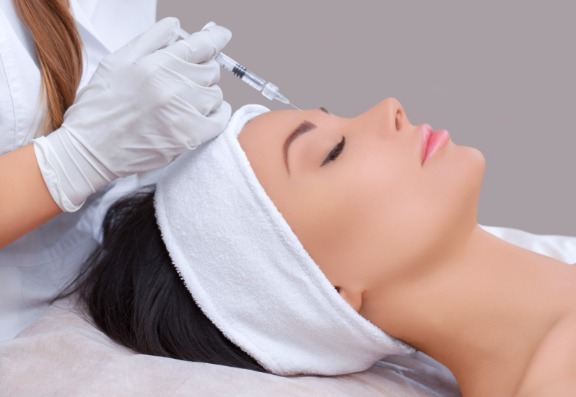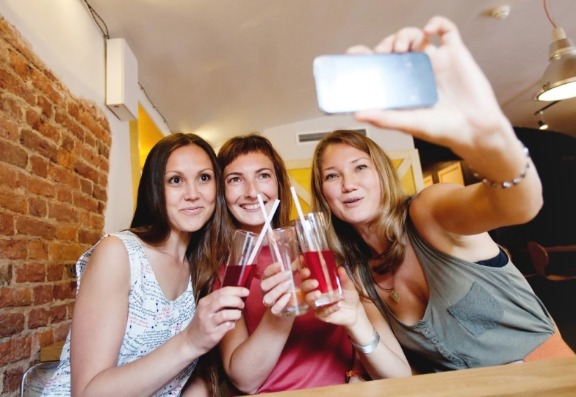Aesthetic treatment stigma is something you’ve probably witnessed first-hand – whether you’ve had a treatment yourself or not.
We’ve all heard snarky comments about treatments like Botox or dermal fillers, but where has this negative connotation come from? And are attitudes towards aesthetic treatments changing?
Newly Developed Medical aesthetic treatments
Aesthetics is not a very old field of medicine. In fact, the first Botox cosmetic treatment didn’t happen until the 1990s – and even then, it was discovered by accident! A Canadian ophthalmologist was using the toxin to treat an eye condition that caused the forehead to spasm. Botox prevented the spasms from happening, and, as a side effect, it also seemed to have incredible “anti-ageing” qualities. It somehow smoothed out the wrinkles of the forehead!

Stigma surrounding aesthetic treatment
All medical fields need time, patience and trial and error to develop, and it’s no different for aesthetics. In the 1990s and 2000s, many people rushed to get the revolutionary new cosmetic treatments that promised to make people look younger and more attractive.
And because the medicine was new, it was at the time very expensive. This meant it was often high-profile people and celebrities getting treatment. So, the results were always splashed across the tabloids and gossip magazines – and as a developing medicine, the results weren’t always great.
It took time to develop the correct techniques and the knowledge needed to get natural, subtle-looking results. This meant that we all grew up with the idea of “botched” cosmetic treatments, like oversized “duck” lips and faces that were frozen and expressionless.
Aesthetic treatment stigma evolved because of these stereotypes.
But the fact is, aesthetic treatment has come a long way since then.

How to become the Best Version of Yourself
In my opinion, aesthetics isn’t about vanity – it’s about being the best version of yourself. No one questions when we buy ourselves nice clothes to wear or get our hair or nails done professionally. We take for granted that we do these things to feel good about ourselves. So, why should aesthetics be any different?
Medical cosmetics, to me, are simply an extension of this – boosting our confidence and making sure we look good for our age. Much of what I do is preventative therapy, delaying the onset of ageing and making you feel comfortable in your own skin.
Misconceptions and stigma surrounding aesthetic treatments
Aesthetics is about treating those things that make you most self-conscious and improving your sense of wellbeing.
Which is another important point to make. It has now been proven by scientific studies that aesthetic treatments are closely linked to positive mental health. It makes sense – if you feel good about yourself, you’ll feel more positive about all other aspects of your life. It’s like putting on your favourite outfit or pair of shoes. It makes you feel ready to take on the challenges life has to throw at you.
What’s key is achieving natural-looking results.
Common misconceptions against aesthetic treatments
Doing Your Research
But of course, like all things, it’s important to do your research before having an aesthetic treatment done. I believe you should only trust an experienced medical professional when it comes to aesthetics treatments.
The parts of the body most often treated – the face, hands and neck, for example – are very intricate and really do require a medical background to understand properly.
A medical professional with the right training is going to be the best positioned to help you achieve natural-looking results. They will understand the proportions of the face and other body parts, and what treatments will be most effective.

Tips to be the Best Version of Yourself
A simple weekend course on aesthetics isn’t going to cut it. Substantial training and qualifications, such as the Level 7 in Injectable Treatments, are required to have enough knowledge to achieve good outcomes.
But it’s not just about the quality of the results. Properly trained professionals have the ability to resolve any possible complications that may happen during or after treatment, meaning you can be confident your health is in safe hands. Medical practitioners are also regulated by professional bodies, making them responsible for your care. This isn’t the case for non-medical professionals. It’s important to remember that no treatment is risk-free.
It’s vital to find the right practitioner, who can use their medical knowledge to advise you on the best course of treatment. Otherwise, you could end up with the “plastic” looking face of the ’90s!

Understanding Aesthetic Treatment Stigma
Changing Attitudes
I do feel as though attitudes to aesthetic treatments are changing, and aesthetic treatment stigma is becoming less common.
It’s not something you have to hide or lie about anymore. I personally have treatments done – profhilo being one of my favourites – and I often discuss my experiences with my patients, to put them at ease and give them an idea of what results will be like.
Breaking down aesthetic treatment stigma
I am seeing more diversity in my patients – both young and old, male and female. Slowly, people are beginning to realise it isn’t just vanity driving people to have aesthetic treatments, but simply wanting to feel good both inside and out.

Author: Dr Raquel Amado
DR RAQUEL SKIN AND MEDICAL COSMETICS WAS FOUNDED BY DR RAQUEL AMADO
Dr Raquel was born in Portugal, where she graduated as a dental surgeon in 2007.
She undertook training for six years, studying human physiology, pathology, biology and specifically the head and neck.
Soon after, Dr Raquel moved to England, working for the NHS as a General Dentist.
Over the years, she did a post-graduate in Dental Sedation and Pain Management at the UCL Eastman Dental Institute in London, a year certificate of Cosmetic and Aesthetic Restorative Dentistry, as well as other accreditations.
It was at this point Dr Raquel developed a real passion for medical aesthetics. She completed several training courses on facial aesthetics with such prestigious institutions as Derma Medical, Face and Harley Academy, before founding her own aesthetics clinic in Kings Hill.
At Harley Academy, Dr Raquel also found a home as a Lead Senior Clinical Mentor for the UK’s largest postgraduate training provider in aesthetic medicine, guiding other medical professionals through the UK’s first fully-regulated Level 7 qualification for injectables.
She is an Affiliated Member of the Aesthetics Complication Expert Group (ACE) of practitioners and CMAC, which aims to improve patient safety in facial aesthetics.
As Dr Raquel has been clinically trained to use anaesthetics safely, she is highly skilled with needles and injection techniques.
Throughout her career, Dr Raquel has understood that most people are looking for a reliable, honest relationship with their practitioner, which is why she takes the time to understand how her patients feel.
Dr Raquel is known for her friendly and caring manner, being discreet, and putting her patients at ease. She is committed to the provision of safe, high-quality patient care in order to achieve the best outcomes for patients, and make them feel confident in their own skin.
To view more blogs by Dr Raquel Amado please click here.
